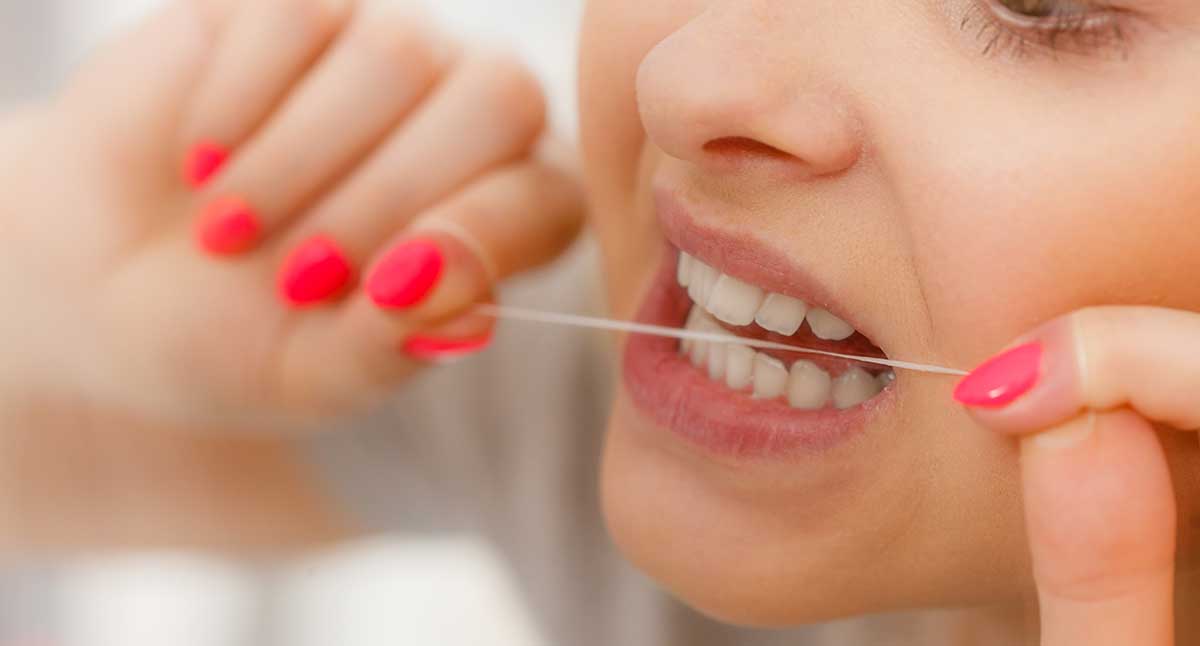
Posted on May 30, 2019
If your gums bleed when you brush or floss your teeth, you might shrug it off or think this is normal. But bleeding gums could indicate an underlying problem.
Bleeding gums doesn't mean your mouth is not clean, but it can mean you need to floss more often. It's fairly common for gums to bleed when you first begin flossing between teeth, and as long as the bleeding stops quickly, it's not usually considered a problem.
Several factors can contribute to bleeding gums, and understanding these can help you take the right steps towards better oral health:
1. Plaque Buildup and Gum Disease (Gingivitis & Periodontitis):
The most common reason for bleeding gums is the accumulation of plaque, a sticky, colorless film of bacteria that constantly forms on our teeth and along the gum line. If plaque isn't removed daily through brushing and flossing, the bacteria can irritate and inflame the gums. This early stage of gum disease is called gingivitis.
- Why it causes bleeding: The inflammation caused by the bacteria in plaque makes the gum tissue swollen, tender, and more fragile, leading to bleeding during brushing or flossing.
- If left untreated: Gingivitis can progress to periodontitis, a more severe form of gum disease that can damage the soft tissues and bone supporting your teeth, potentially leading to tooth loss.
2. Improper Flossing Technique:
While flossing is crucial for removing plaque and food particles from between teeth, doing it incorrectly can also cause your gums to bleed, especially when you're new to flossing.
- The right way: Gently slide the floss between your teeth and curve it into a "C" shape against the side of each tooth, sliding it slightly below the gum line. Avoid snapping the floss forcefully, which can injure the gum tissue.
- Floss before brushing: Flossing first helps to dislodge debris and bacteria, which can then be effectively removed when you brush.
3. Brushing Too Vigorously:
Using a hard-bristled toothbrush or applying too much pressure while brushing can irritate and even damage your delicate gum tissue, causing it to bleed.
- Gentle is key: Opt for a soft-bristled toothbrush and use gentle, circular motions when brushing. Let the bristles do the work, rather than applying excessive force.
4. Hormonal Changes (e.g., Pregnancy):
Hormonal fluctuations, such as those experienced during pregnancy, can increase blood flow to the gums and make them more sensitive and prone to bleeding. This is often referred to as pregnancy gingivitis.
- Importance of oral hygiene: Maintaining excellent oral hygiene during pregnancy is crucial to manage this increased sensitivity.
5. Other Potential Causes:
- Vitamin Deficiencies: Lack of certain vitamins, particularly vitamin C and vitamin K, can contribute to bleeding gums. Vitamin C plays a role in tissue repair, while vitamin K is essential for blood clotting.
- Dry Mouth: Saliva helps to neutralize acids and wash away food particles and bacteria. Reduced saliva production can increase plaque buildup and the risk of gum disease.
- Certain Medications: Some medications, such as blood thinners, can increase the likelihood of bleeding gums.
- Smoking: Smoking weakens the immune system, making it harder for the body to fight off gum infections and hindering the healing process.
- Stress: Some studies suggest a link between high stress levels and gum disease, as stress can negatively impact the immune system.
What You Can Do!
Once you know the cause, you can choose among these 11 possible ways to stop the bleeding and improve your oral health.
Good oral hygiene
- Gums become inflamed and bleed when there’s a buildup of plaque along the gum line. Plaque is a sticky film containing bacteria that covers your teeth and gums. And if you don’t brush or floss enough, the bacteria can spread and cause tooth decay or gum disease.
Floss Properly
- When you floss, be certain to gently slide the floss below the gumline. All too often dental patients get in the habit of sliding the floss only so far between the teeth and never touching their gums. It's also preferred if you floss before brushing your teeth as the floss will bring out bits of food and bacteria which brushing will remove.
Rinse with hydrogen peroxide
- You might keep hydrogen peroxide on hand to use as a disinfectant. Turns out it is also a mild antiseptic that can also remove plaque, promote gum health, and stop gum bleeding. If your gums are bleeding, rinse your mouth with hydrogen peroxide mixed with equal parts water after brushing and spit it out. Do not swallow. Before you even attempt this, consult your dentist first and follow all warnings and instructions on the package.
Stop smoking
- In addition to heightening the risk of lung cancer, heart disease and stroke, smoking is linked to gum disease. Smoking can lower your body’s immune system, making it harder for your body to fight off bacteria. The City of Hamilton has a list of smoking treatment plans nearby.
Reduce stress level
- One study suggests a link between periodontal disease and emotional stress. According to the researchers, emotional stress has a negative impact on the immune system. This may result in weakening of the body’s defences to the point where it can’t fight a gum infection.
Increase your intake of vitamin C
- Eating foods rich in vitamin C can strengthen your immune system and help fight off the gum infections that cause bleeding gums.
Increase your intake of vitamin K
- Taking a vitamin K supplement may also alleviate bleeding gums. Vitamin K is an important nutrient because it helps your blood clot.
Apply a cold compress
- Bleeding gums aren’t always caused by gum disease. Your gums may also bleed from trauma or an injury to the gum tissue. Try using a cold compress applied to the gum line to reduce swelling and restrict blood flow to stop bleeding.
Eat fewer carbs and sugar
- Reducing your carbohydrate intake may also improve gum health and prevent gum disease. Carbohydrates and sugary foods encourage plaque and the growth of bacteria. Cutting back on carbohydrate can reduce plaque formation.
Drink green tea
- Drinking green tea on a daily basis may reverse periodontal disease and stop bleeding gums. Green tea contains catechins, a natural antioxidant that can lower the body’s inflammatory response to bacteria in the mouth.
Rinse your mouth with salt water
- Regularly rinsing your mouth with a mixture of warm salt water may also reduce bacteria and stop gum bleeding. Add half a teaspoon of salt to a glass of warm water and rinse your mouth for a few seconds three to four times a day.
When to see a dentist about Bleeding Gums
Contact us at Stoney Creek Dental, 905-662-1999 if your gum bleeding doesn’t improve within 7 to 10 days or is accompanied by other symptoms such as bad breath, loose teeth, receding gums or pain.
These could be signs of more advanced gum disease that requires professional treatment. Our dental hygienists can provide thorough deep cleanings (scaling and root planing) to remove plaque and tartar buildup below the gum line and promote healing. Regular dental checkups are also crucial for early detection and prevention of gum disease.
